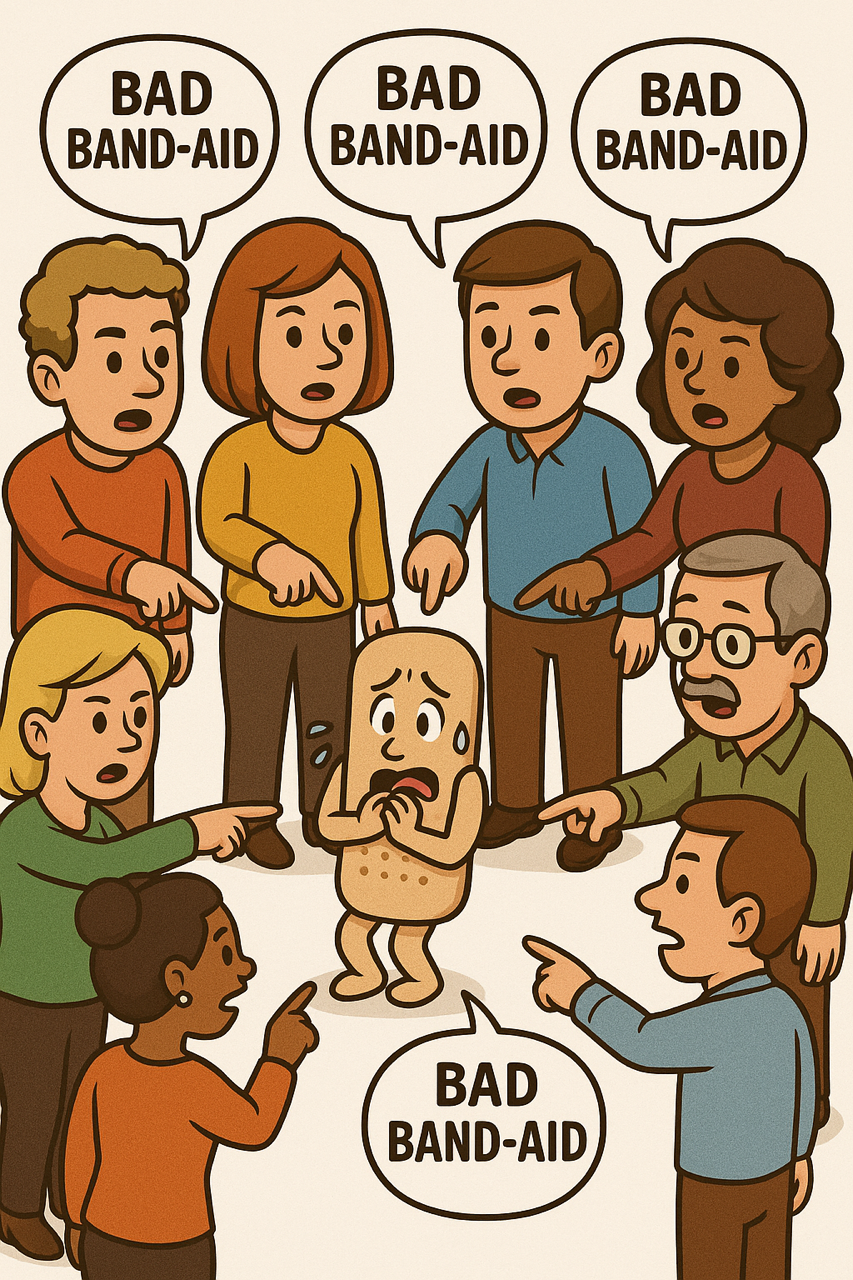STOP Blaming the Band-Aid
If you got a deep cut and covered it with a Band-Aid, no one would blame the Band-Aid for causing the wound. That would be ridiculous. But in most drug treatment centers, that’s exactly what we do—we blame the substance, not the pain underneath.
Drugs and alcohol are often just Band-Aids. People use them to cope with something much deeper: trauma. Whether it’s childhood abuse, domestic violence, war, or systemic neglect, trauma leaves lasting wounds. The brain changes, trust erodes, emotions become chaotic or numb. Substances become a way to survive—something that dulls the pain or quiets the chaos, even temporarily.
But instead of asking, “What happened to you?” we ask, “Why are you doing this to yourself?” Then we rip off the Band-Aid without treating the cut.
The result? Relapse, shame, and a cycle of failure—not because people are broken, but because we’re not treating the real injury.
Addiction is not the root problem—it’s the symptom. If we want true recovery, we need to stop blaming the Band-Aid and start healing the wound.
At Phoenix Ranches, we focus on the root causes so that Band-Aids are no longer needed.

